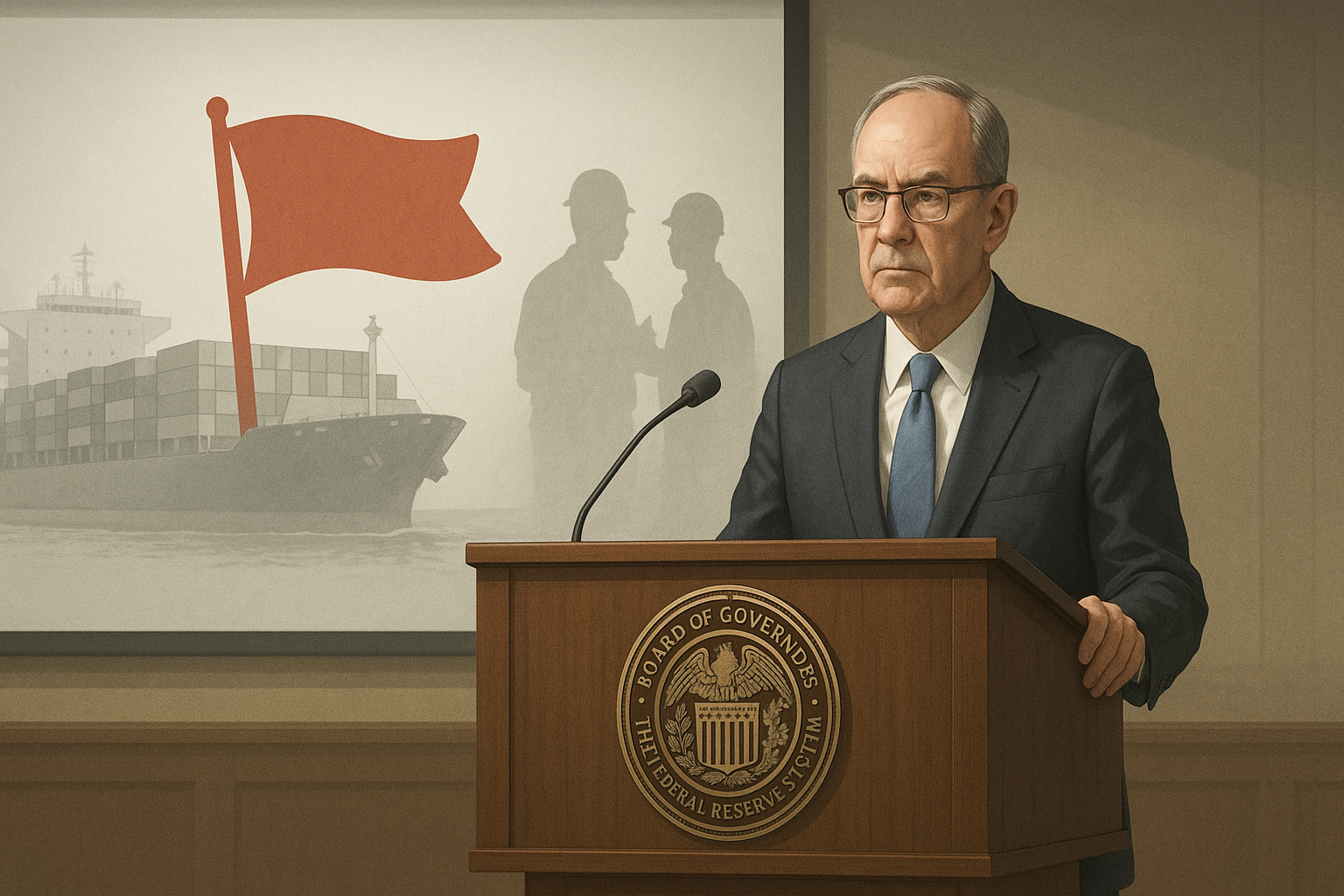Fed Chairman Jerome Powell sent subtle but unmistakable ripples through financial markets yesterday when he voiced concern about two looming economic threats – tariffs and labor force challenges – during what was supposed to be a routine central banking forum in Portugal.
I've been covering Powell's statements for years now, and this one struck me as particularly noteworthy. Not for its delivery (Powell maintains his characteristic measured tone) but for its content, which veered unusually close to political territory during an election season.
"Significantly higher tariffs," Powell cautioned, would inject substantial uncertainty into the economic outlook. He paired this with worries about an "abrupt slowdown in labor force growth" – a double whammy of potential problems that clearly has the Fed concerned.
Look, Powell doesn't typically wander into speculative political commentary. Especially not during an election year where tariffs have become campaign fodder. So when he specifically mentions tariff risks, it suggests the concern has graduated from theoretical to concrete in the Fed's economic modeling.
The timing here is fascinating.
Powell has recently projected cautious optimism about inflation's downward path, even hinting at potential rate cuts later this year. By highlighting these uncertainties now, he's essentially adding footnotes to that rosy outlook: *assuming no major tariff escalations, *assuming labor markets behave themselves.
What's he really saying between the lines? (And central bankers always speak between the lines.)
Having attended several of these forums, I can tell you that Powell is attempting a high-wire act between economic reality and political neutrality. The first Trump administration implemented significant tariffs, and both current presidential candidates have signaled various protectionist policies. Powell is essentially saying, "I'm not picking sides politically, but economically speaking, this could get complicated."
Markets hate uncertainty. They can adapt to almost any consistent policy framework – even suboptimal ones. What throws them into chaos is not knowing what rules they'll be playing by next quarter.
Higher tariffs wouldn't just increase costs (though they certainly would). They'd force global supply chains – painstakingly optimized over decades – to undergo massive reconfigurations. That transition period creates productivity drags and... you guessed it... inflationary pressures. Precisely what the Fed has been battling.
His labor force comment deserves equal attention.
The post-pandemic job market has been downright bizarre. We've seen persistent labor shortages in some sectors alongside wage growth that defies typical patterns. Powell's concern about an "abrupt slowdown" in labor force growth hints at demographic challenges (our aging population, declining birth rates) colliding with potential immigration policy shifts.
These two issues – tariffs and labor constraints – aren't coincidentally mentioned together. Restricted immigration policies (often politically bundled with protectionist trade stances) would further limit labor force growth. This creates a nasty inflationary scenario: goods become more expensive through tariffs while labor shortages drive wages higher.
Not a recipe for economic stability, that's for sure.
Market reaction was predictably muted – Powell has mastered delivering potentially alarming news in such measured tones that traders barely register concern. But this was a significant acknowledgment of political-economic risks on the horizon.
It reminded me of Greenspan's famous "irrational exuberance" speech – not in content, but as a rare moment when a central banker steps slightly outside their comfort zone to flag concerns about factors that could derail their carefully constructed economic narratives.
Will these warnings impact the policy debates shaping both trade and immigration? Probably not. Politicians rarely adjust campaign positions based on central banker concerns.
But at least Powell has put these issues firmly on the economic radar. Whatever policy choices are made after November, nobody can claim they weren't warned about potential consequences.
Sometimes the best a central banker can do is provide the economic equivalent of informed consent before the patient – in this case, the American electorate – decides to proceed anyway.
